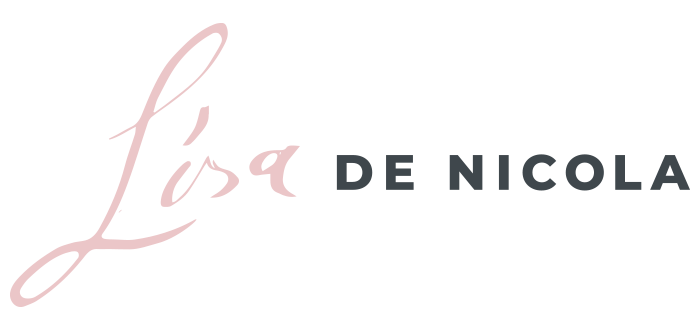Whether you’re a leader at work or not, you’re the leader or, as I like to say, the Director of your own life. Leading yourself in all domains of your life first so you can show up as your best to the world, from the workplace to your relationships.
In corporate, this can seem like a far stretch as you’re often holding yourself to a standard and playing by rules someone made up centuries ago.
The time and year don’t matter, to be honest (ok, maybe a little, but truthfully I was being cheeky). It’s an outdated rule book that doesn’t work today. Over time we’ve been conditioned to believe that corporate looks, sounds and acts a certain way.
Usually at the expense of leaving parts of you behind. You either agree to play by a set of rules and if not, you’re usually being judged and frowned upon in some way or another.
Aren’t you exhausted?
I am just thinking about it.
Are you playing one role at work and another in other areas of your life? If this isn’t you, a round of applause. Congratulations on getting to the place where you’re fully being yourself without abandoning yourself.
Yes, abandoning yourself. We’ve all experienced some form of self-abandonment, myself included. The more I understand what it’s looked like in my life (and in the past when I was in corporate), things changed. More importantly – I changed, and you can do the same if you recognize yourself here.
Examples of self-abandonment include:
- People-pleasing
- Invalidating or dismissing your feelings
- Hiding parts of you for fear of being judged or disapproved of
- Pretending to be someone you’re not
- Not speaking up or sharing your truth
I’ve seen this show-up time and time again with my clients. They find themselves in a situation where they’re torn with how to deliver an organizational message to their team and feel unable to convey their true feelings.
Wanting to be perceived a certain way, avoid being criticized, do the “right thing,” and act as the messenger with no real response or reaction, for that matter. It’s unrealistic.
In one case, I was working with my client, who had experienced this for the third time. Their company was going through another round of changes, only this time, it had caught up with my client. Not the changes – the fact that she felt she couldn’t be transparent and authentic with her team.
She wanted to be coached through how to get to a place where she could deliver a message from the company, be supportive of her team and feel good at the same time.
Note: this wasn’t about being happy, given the message wasn’t the greatest. It was about being authentic, transparent and congruent in her mind and heart.
She said,
“Lisa, I don’t want my team to think I don’t have their back. I support them 100%; there’s been a lot of change with the company, much of which, as leaders, we don’t have all the information to empower us and give answers to our people. The little info we do have doesn’t seem to be satisfactory either and leaves more questions from the team.
The truth is, I understand their point of view, but I’m struggling with sharing my feelings on the matter and staying true to a message that I don’t agree with.
It was a tough one and not impossible to achieve. We worked through this with the end in mind.
What would the ideal conversation sound like?
How did she want to feel?
What would demonstrating support to her team while communicating this organizational message sound like?
These were some of the questions we worked through.
Here are some of the insights that came from this realization that she didn’t have to abandon herself in her role as a leader:
- Showing her care and empathy for her team is more important than the message itself.
- She can be honest and transparent instead of ignoring her feelings while delivering tough messages.
- She doesn’t have to pretend to be in agreement with something she is not.
- Being integral to who she is as a leader is more important than showing up a certain way for fear of being judged.
- Sharing her thoughts about an organizational message she doesn’t agree with doesn’t mean she is a bad leader if it’s different from the organization.
It’s not always black and white, and sometimes the messages we communicate to those in our charge aren’t easy. More importantly, they also don’t require you to abandon who you are and how you feel about a matter for fear it’s not how you’re “supposed” to communicate or show up in the workplace.
Here’s the truth – it doesn’t have to be this way.
You stop abandoning yourself when you:
- Honour your feelings and find the courage to express them in an authentic way
- Practice self-compassion
- Speak your truth and use that voice you have!
Your team doesn’t want a cookie-cutter version of a leader to aspire to and look up to. They want someone real and an honest example of leadership.
If they’re getting the version of you hiding the parts that can be helpful and inspiring to them, is that really the leader you want them to follow?
I’m curious and would love to hear from you in the comments.
Which of the examples of self-abandonment listed above have you experienced in the workplace? Maybe it wasn’t at work, yet in some area of your life, you’ve struggled with.
Share them in the comments below and remember – the greatest gift you can give to those you lead, or anyone for that matter, is the full expression of who you are. All of you.
Big love,
Lisa 💖






2 Responses
In the past, I’ve experienced all five of the self-abandonment examples you provided, but I would never have described that behaviour as self-abandonment until now!! Thank you for that. I believe this is why having more than an intellectual understanding of your core values of how you want to show up at work (in life) is so important—so you can realize quickly when you’re off the mark and have fallen out of integrity with who you are, who you want to become and how you want to show up. Great insights as always Lisa.
Thank you Jenn for sharing, I’ve experienced the same and at the time didn’t realize that I was abandoning a part of me. It’s another way of looking at all the ways we hide who we are or play small in environments that are traditionally designed to play a specific role, i.e. corporate. And you’re so right about the core values, I’m so grateful for learning about the importance of them through YOU in a way I didn’t look at them before! Thanks again for sharing your thoughtful comments.